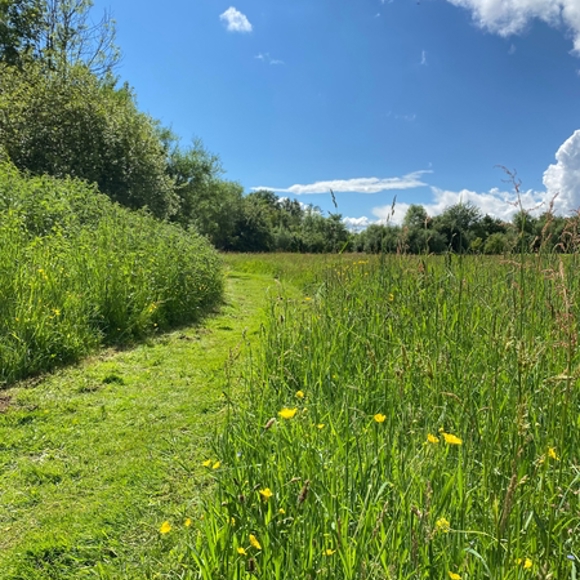
Some topics or conversations can feel so overwhelming, you don’t know where or how to begin. And the subject of dying may be the most difficult of them all. Each May, Hospice UK’s Dying Matters week takes place. The campaign’s goal is to create a culture where talking about dying and grief feels more comfortable.
As it’s something we all experience, we respect and appreciate this annual campaign and its efforts to reduce the associated isolation, stress and loneliness.
Through sharing stories, accessible resources and training sessions, Hospice UK is helping people process grief and comes to terms with mortality. We find the work that they’re doing inspiring, and feel compelled to create something that our readers can use to help them prepare for death or loss. While it’s an incredibly challenging topic, once you open up about it, you’ll begin to feel better.

Why it’s important to start conversations
Our Head of Care and Wellbeing, Shirley Hall, explains, “opening up about death is an opportunity to come to terms, emotionally and spiritually, with what is happening. That way, you’re better equipped to face the practical aspects of coming to the end of your life.”
The more time you give yourself to prepare, the more opportunity you have to decide the end of life care you want. This advanced care planning can include the care and treatments you want, or don’t want, so that you can make your wishes known in advance, while you’re able to. That way, if needed, your family will know which decisions to make about your care too.
It’s also important to make sure you have an up-to-date estate plan and will, which we appreciate can be difficult to plan for if you don’t feel ready to talk about dying. But this, again, makes sure your wishes are respected.
Bruce, one of our residents at Elmbridge Village, shares his thoughts,

I have put very serious thought into all of my end-of-life documents, with close family support. It is important to me to ensure my wishes will be met, and understood, and those around me are aware of them. I have completed various documents, including an Advance Decision, Advance Statement and ReSpect form that are filed with my GP. The GP cannot always speak to the emergency services, or hospital, so I have made sure everyone who holds my medical records, like the team at Elmbridge Village, and my local hospital are aware of my wishes too. It is not a simple process and it has taken some time to establish and get through. It is important for people, including family, to consider early and not later, to make sure that they and the medical profession are fully and properly prepared.
How to have the conversation
Do it in person
Try to have the conversation in-person, and somewhere quiet where you feel safe and won't be disturbed. If that's not possible, a phone call can feel more personal than texting.
Write a list of what you want to talk about in advance
Creating a list of things you want to talk about in advance can help you ensure you get everything off your chest, and make it easier to guide the conversation if it becomes difficult.
Set boundaries
The most important thing is that you have the conversation that’s right for you at this time. If there are any topics you don’t want to talk about, or anything you don’t want to hear, let the person know at the start of the conversation. This can be as simple as, “thank you so much for talking to me about this. Right now, I don’t feel comfortable discussing X, I hope that’s OK with you.”
It can also be worthwhile asking what the other person’s boundaries are, to make sure they feel heard and respected too.
Don’t push yourself
If you’re starting to feel too uncomfortable or distressed, it’s OK to end the conversation and save it for another day. Don’t push yourself beyond what you’re comfortable with. It doesn’t need to be just one conversation, it can be as many as you need.
If someone asks to have the conversation with you
Listen first
Be attentive to what the person is looking to get out of the conversation, and prioritise listening over talking. They may just want to vent, or need you to hold space for them to be vulnerable. Simply listening, maintaining eye contact and holding their hand can be enough. Let them guide the conversation.
Avoid denial
If someone wants to talk about the fact that they’re dying, you may feel the urge to deny what’s happening with phrases like "stop, you're going to be fine". It can feel uncomfortable to let someone talk openly about their own mortality, especially if you feel grieved by it too, but it's so important to give people space to come to terms with it.
Coping with dying
The emotional toll when you are dying may feel like too much. You’re not alone in this. There are steps you can take to help process your feelings and move towards peace.
Speak your feelings
Speaking your feelings can bring relief and help take some of the weight off. That could be to your partner, a family member or friend, or you may choose to get help from a counsellor.
Of course, don’t push yourself if you feel too uncomfortable, but try to take small steps towards speaking your feelings. It can be as small as saying “I don’t feel good today,” if someone asks you how you are. Alternatively, if you don’t want to talk about them with someone, writing your feelings down can help you process them.
Be honest with close ones
Confide in the people close to you about how you’re feeling, and what you may be struggling with. For example, if a special event is coming up like a birthday, but you feel it might be too hard for you to celebrate, be honest about that. The most important thing is to prioritise your emotional wellbeing.
Take it one day at a time
It can be easy to get lost thinking about what the future may look like, but try to pause in those moments and bring yourself back to today. Taking each day as it comes and staying present can help relieve pressure, manage anxiety and stop thoughts from spiralling.

Resources to help
There’s a wealth of resource online now to help support you and loved ones through the emotional and practical impact of death and grief, such as the NHS guide on coping with a terminal illness. And Hospice UK’s Dying Matters campaign offers downloadable resources, informed by experts and those with their own stories.
Emotional support
The Dying Matters campaign has helpful content you can download that can help you manage the emotional side of dying, like their five books to help us think about dying and grief. They also have a 16-series podcast with episodes that cover subjects like talking to children about death, and the importance of music at the end of life.
You may also find that it helps to speak to others going through similar experiences. The Dying Matters online community can provide that. Many specialised charities also have local and online communities that you can join, like Marie Curie’s community.
For those experiencing loss and grief, charities like Cruse and the National Bereavement Service provide free bereavement support, and you can find a list of bereavement helplines here.
Practical support
It’s natural to feel overwhelmed when starting to organise the practical aspects of dying, such as end of life care. But there are teams and resources to make this easier for you, where they can. We’ve listed some of those below.
Care
When planning end of life care, you may want to organise an advanced statement. This written statement helps ensure your wishes are respected if you are unable to communicate them later. For more information, we recommend reading the NHS guide to creating an advanced statement.
If you’ve been diagnosed with a terminal illness, Hospice UK has useful information and support to help you organise things like finding a hospice. And with the NHS, you can find your local palliative care services.
Lasting Power of Attorney
You may also want to organise a Lasting Power of Attorney (LPA). This officially appoints someone to make decisions for you, if you are no longer able to. If you’re unsure whether you need an LPA, you can contact the Office of the Public Guardian at 0300 456 0300 (open weekdays), or email them at customerservices@publicguardian.gov.uk.
You can also make, register or end an LPA through the Government’s website, or find out more through the NHS.
Estate planning and writing a will
Again, this is all about ensuring your wishes are respected. An estate plan dictates what should happen to your assets and estate after you die. Your will is part of your estate plan, and it’s important to make sure that, even if you already have one, it is up to date and valid.
Age UK has a helpful guide to making a will, and the National Bereavement Service offers a breakdown of estate planning that includes free support, if you need it.
Other things to consider
You may also want to consider planning the kind of funeral service you would like, such as which faith you would prefer the service to be in, any music you would like to include, and flower arrangements.
Many people decide to organise a funeral plan at this time, if they haven’t already. A funeral plan allows you to pay either as a lump sum or regular payments towards your funeral costs. This can take the financial pressure off family members.
Some people also choose to do Swedish death cleaning. This is simply the process of clearing out your home before dying, so that your family don’t have to do it after you die. Swedish death cleaning may also help you find things you had forgotten about that you want to add to your will.
Coming to terms is challenging
Coming to terms with end of life conversations can be hard, but an important step in finding peace. We believe normalising death, reaching out for help and having conversations will provide a sense of relief and security. It gives people time to consider what their life means to them, and plan for the practical things, such as getting the end of life care they want and deserve. That’s why we support what Dying Matters is doing; creating an open culture where we can talk about death and grief.
We hope you’ve found some comfort in reading this. Continue reaching out and seeking support, you will find it.

